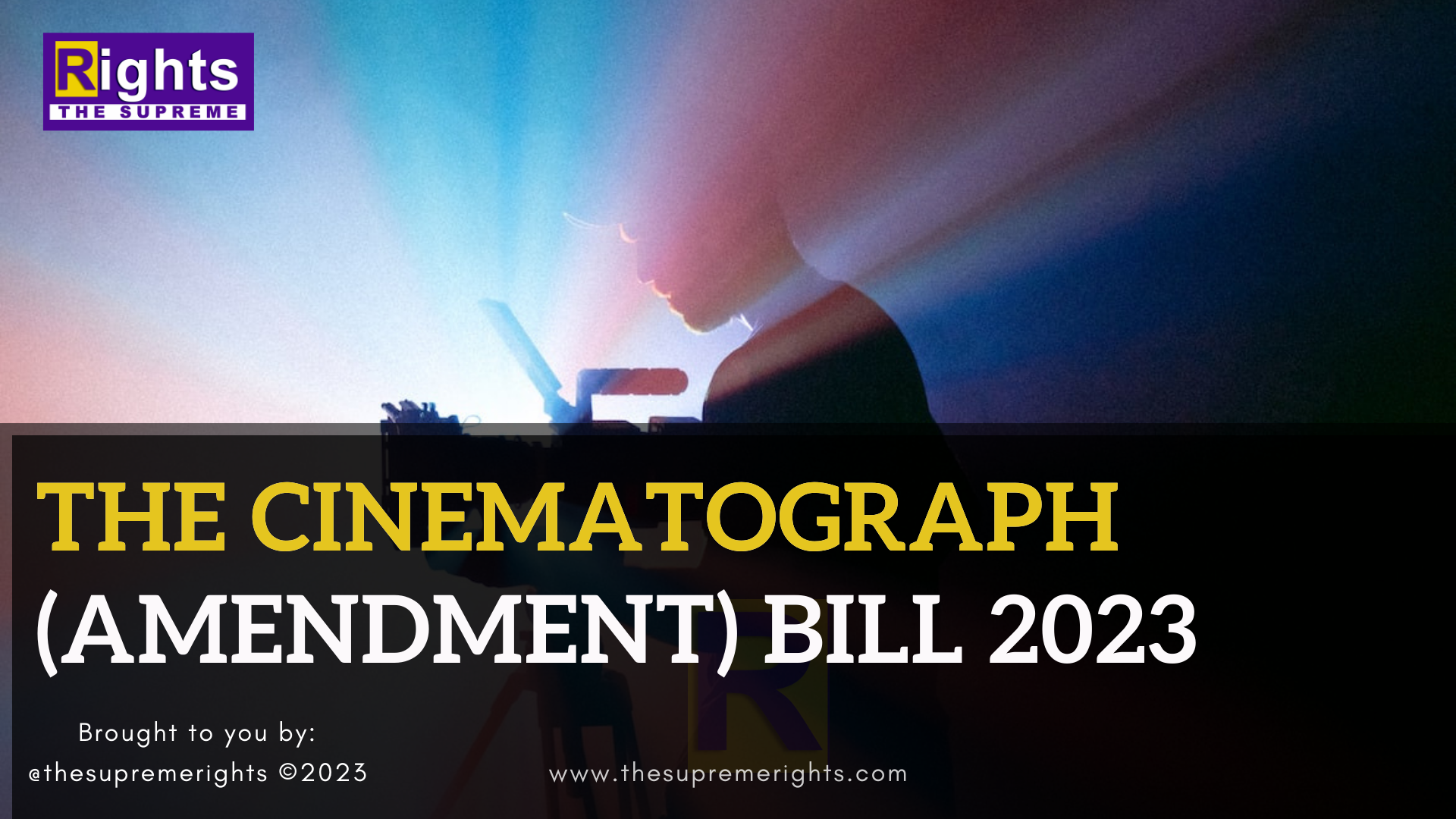
August 20, 2023
Navigating the Landscape of Cinematic Expression: The Cinematograph (Amendment) Bill 2023
The world of cinema has always been a platform for artistic expression, cultural representation, and social commentary. In an era where content consumption has rapidly evolved, the role of filmmaking has become even more crucial in shaping people's awareness. To keep pace with the changing dynamics of the film industry and to address emerging challenges, governments often introduce amendments to existing legislations.
In this context, the government, introduces the Cinematograph (Amendment) Bill, 2023 to amend the Cinematograph Act, 1952. The Bill received the President's assent on August 4, 2023.
It has been passed after numerous versions and revisions of the draft bill, bringing long sought respite to film producers in the country. The primary objective to amend the Act is to tackle the long-standing issue of film piracy.
Historical Context
The original Cinematograph Act of 1952 laid the foundation for the regulation and certification of films in India. The Act aimed to ensure that films were not against the interests of public order, decency, or morality. Over the years, various amendments were introduced to reflect changing societal norms and technological advancements. The Cinematograph (Amendment) Bill 2023 marks another chapter in this ongoing journey of balancing artistic freedom and societal concerns. This Article includes the important provisions of the newly Amended Act.
Key Features of the Amendment
Provision for Age-Based Categorization: One of the noteworthy amendments is the introduction of age-based categorization of films. This classification system aims to provide more information to audiences about the suitability of a film for different age groups. This move aligns with the increasing need to ensure age-appropriate content consumption, especially in an era where digital platforms have made content easily accessible to viewers of all ages.
Ease in Certification Process: The amendment proposes to establish a digital platform for filmmakers to submit their films for certification. This transition from physical submission to digital platforms is expected to streamline the certification process, making it easier and time-effective.
Provisions against Piracy and Cam-recording: The amendment includes stringent provisions to curb piracy and unauthorized recording of films. The rise of cam-recording in theatres and the subsequent spread of pirated content have been significant concerns for the film industry. The amendment seeks to address these challenges by introducing stricter penalties for those involved in such activities.
Unauthorised recording and exhibition to be punishable: This Act prohibits carrying out or abetting the unauthorised recording and the unauthorised exhibition of films. Attempting an unauthorised recording will also be an offence. An unauthorised recording means making or transmitting an infringing copy of a film at a licensed place for film exhibition without the owner’s authorisation. An unauthorised exhibition means the public exhibition of an infringing copy of the film for making profit.
The above offences will be punishable with imprisonment between three months to three years, or a fine between three lakh rupees and 5% of the audited gross production cost.
Certificates to be perpetually valid: Under the Act, the certificate issued by the Board is valid for 10 years. The Bill provides that the certificates will be perpetually valid.

Challenges and Concerns
While the proposed amendments aim to address various contemporary issues, they also raise concerns regarding artistic freedom and potential censorship. Critics argue that subjective categorization and the vague definition of certain terms might lead to unnecessary restrictions on creative expression. Balancing the protection of cultural values with the preservation of artistic integrity remains a challenge, requiring careful deliberation and a nuanced approach.
Impact on Filmmakers and Movie Industry
The introduction of a digital platform for certification is likely to benefit filmmakers, enabling them to submit their work more conveniently. The age-based categorization system can empower parents and guardians to make informed decisions about content consumption by minors. Additionally, the provisions against piracy are expected to protect the economic interests of filmmakers and the film industry at large.

Conclusion
The Cinematograph (Amendment) Bill 2023 reflects the continuous evolution of the film industry and the current government's efforts to keep pace with changing dynamics. The amendment acknowledges the increasing role of digital platforms, the need for age-appropriate content classification, and the urgency to combat piracy. However, it is crucial to strike a balance between regulatory measures and artistic freedom. As the amendment moves through legislative processes and becomes a part of the legal framework, stakeholders must engage in thoughtful dialogue to ensure that the landscape of cinematic expression remains vibrant, diverse, and respectful of both creative intent and societal sensibilities.
FOLLOW US ON INSTAGRAM: @thesupremerights
OUR WEBSITE: www.thesupremerights.com

